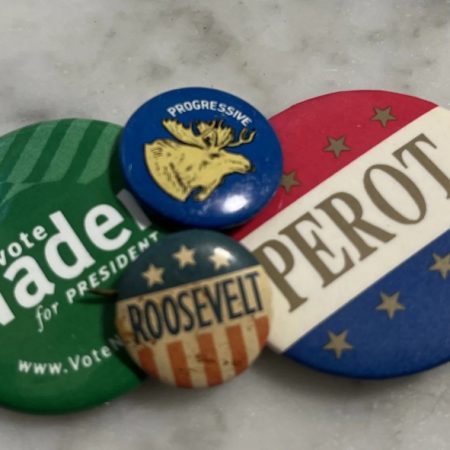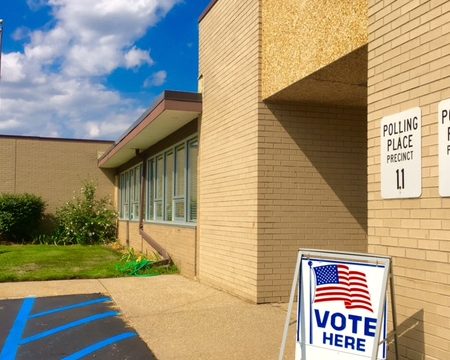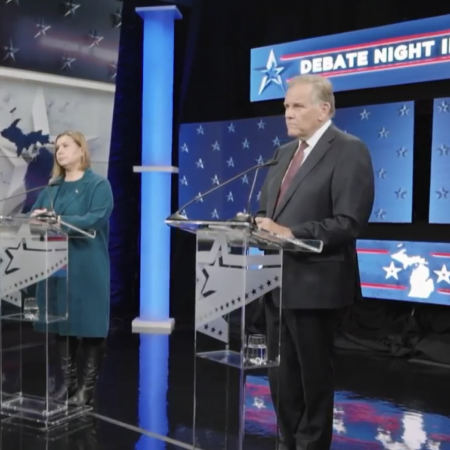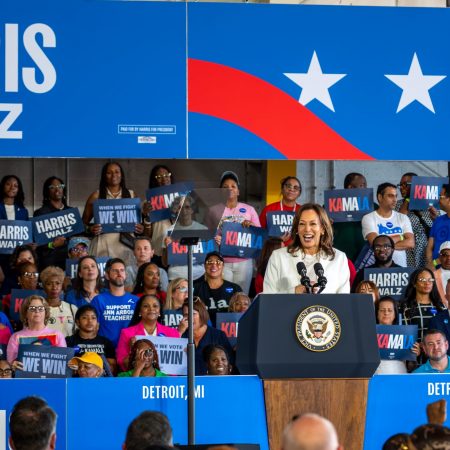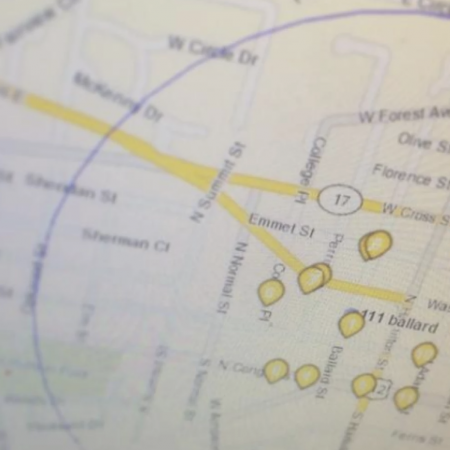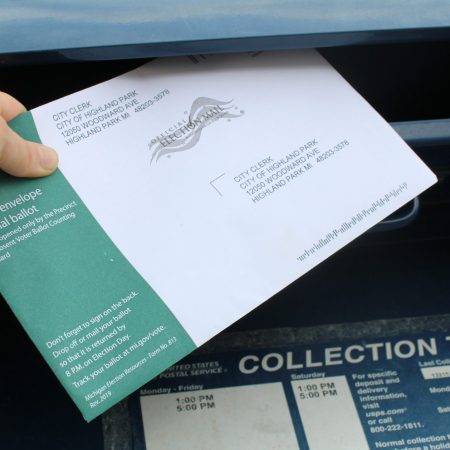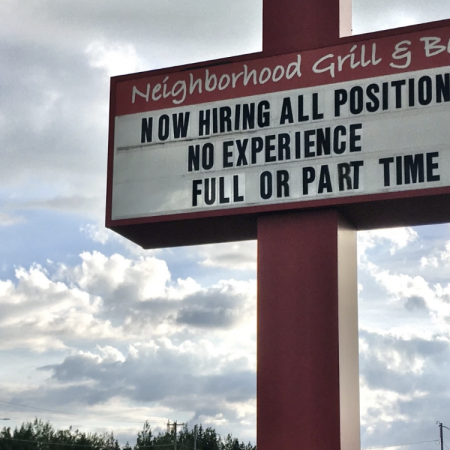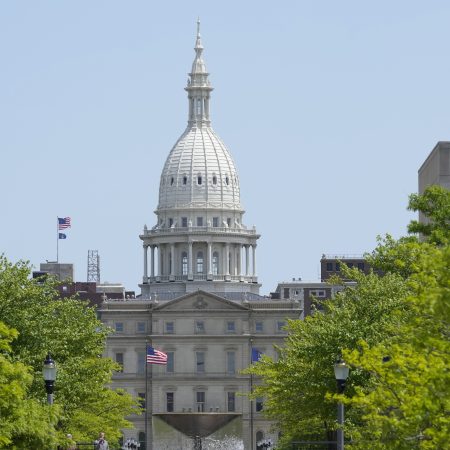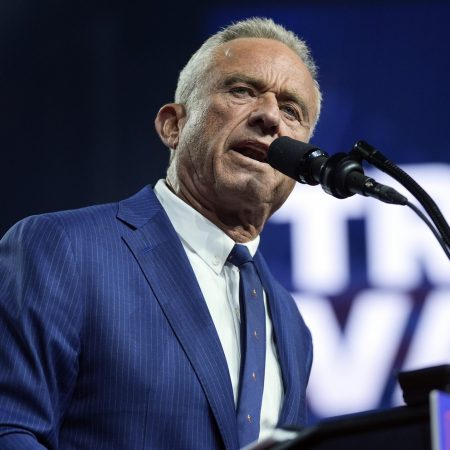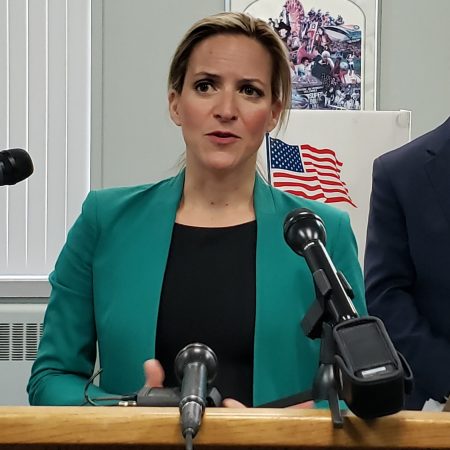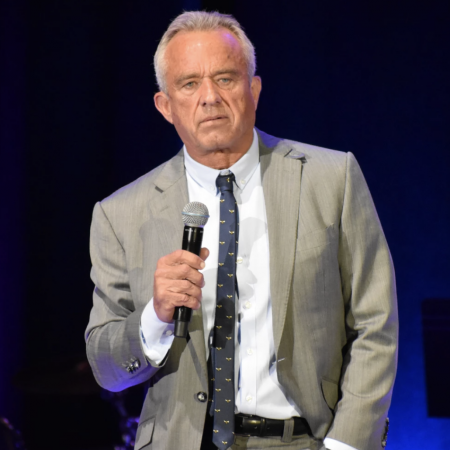The race for president is largely viewed as Vice President Kamala Harris versus former President Donald Trump — the Democrat against the Republican. But the race in Michigan and other states is not as simple as the two big parties facing each other on the November ballot. There are also the smaller third parties on the ballot pushing their own issues and candidates who have little to no chance of winning, but could still play a decisive role.
Spoiler candidates have a long history of scrambling presidential politics in Michigan. Famously, in 1912, former president and former Republican Theodore Roosevelt led the Progressive “Bull Moose” Party ticket. Roosevelt, perhaps disingenuously, declared himself a reluctant candidate to upset the established order.
“I am not leading this fight as a matter of aesthetic pleasure,” Roosevelt said in a speech kept in the Library of Congress audio archive. “I am leading because somebody must lead, or else the fight would not be made at all.”
Roosevelt won Michigan and five other states that year, which was enough to deny his Republican successor, President William Taft, reelection by splitting the GOP vote. That helped deliver an overwhelming Electoral College majority to Democratic nominee Woodrow Wison.
It was a dramatic and unusual political twist, but not the first or the last time third parties and independent candidates have played the role of foil to the two major parties in Michigan.
Michigan is a swing state this year and there are eight candidates on its presidential ballot. Vice President Kamala Harris is the Democratic nominee; former President Donald Trump is the Republican nominee. One of them will almost certainly be the person elected in what’s expected to be a nail-biter race with small parties playing a potentially game-changing role.
Oakland University political science professor David Dulio said Michigan’s swing state status is amplified by its crowded ballot.
“Half a percent here, half a percent there of the total vote can absolutely make a difference,” he told Michigan Public Radio.
Dulio said Green Party nominee Jill Stein and Natural Law Party of Michigan nominee Robert F. Kennedy Jr. appear to have the biggest spoiler potential. Independent Cornel West is a well known academic and activist who is also on the ballot.
Kennedy added drama when he tried to pull his name from the ballot after suspending his Michigan campaign and endorsing Trump. But he was denied by Michigan and federal courts so he remains an option for Michigan voters.
Dulio said Stein, in particular, is making a strong case to metro Detroit’s Middle Eastern voters and progressives opposed to the war in Gaza.
“And I think that’s probably attractive to a lot of voters who were part of the ‘abandon Biden,’ which has now become the ‘abandon Harris’ movement,” he said, “and RFK, I think, is fascinating because, I mean, he endorsed Trump and tried to get off the ballot but that failed and him remaining on the ballot could change the results.”
Look back to 1992, Democratic nominee Bill Clinton took Michigan even though he was short of a majority thanks to independent Ross Perot taking 19.3% of the vote. In 2016, Republican nominee Donald Trump won the state by a fraction of a percentage point over Democratic candidate Hillary Clinton with four other nominees on the ballot as well as one write-in candidate.
This year, said Michigan State University professor Nura Sediqe, many Middle Eastern voters don’t see themselves as spoilers so much as messengers. She told Michigan Public Radio that these are voters who may think the Democratic Party takes them for granted.
“They feel like they’re captured in the party and they don’t have a ton of room to hold candidates accountable and so this is their way of trying to build some type of accountability,” she said.
So, said Sediqe, these voters don’t see themselves as spoilers or the election as a binary choice. She said voters may want to use the ballot to send a message when they feel their interests are ignored by the major parties.
Trusted, accurate, up-to-date.
WDET strives to make our journalism accessible to everyone. As a public media institution, we maintain our journalistic integrity through independent support from readers like you. If you value WDET as your source of news, music and conversation, please make a gift today.

